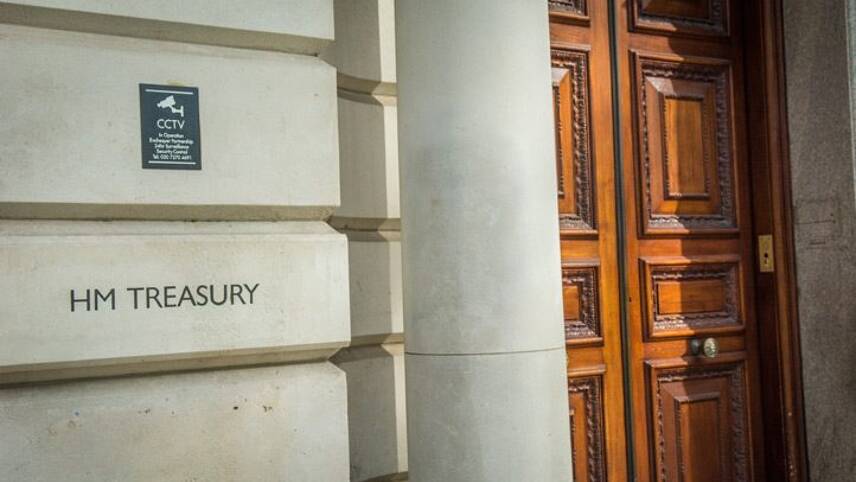Register for free and continue reading
Join our growing army of changemakers and get unlimited access to our premium content

Earlier in the year, UKEF confirmed that has provided no support towards fossil fuel projects overseas for the 2021-22 financial year, marking a first
UKEF has announced that it will introduce new mechanisms to enable vulnerable and developing nations that are hit by climate events like hurricanes and flooding to defer debt repayments. UKEF states that this will enable nations to free up more finance and resources for disaster relief.
UKEF claims it will be the world’s first export credit agency to pause debt service payments under climate-based conditions.
Treasury Minister James Cartlidge announced the new principles, which will be featured through a Climate Resilient Debt Clauses (CRDCs) for use in private-sector lending. Cartlidge called on all creditors, private banks, bilateral lenders and international financial institutions to adopt these clauses.
“Climate shocks are increasing in frequency and severity which is why we are supporting countries hit hardest. In the wake of a disaster, they face painful trade-offs between rebuilding their communities and making debt repayments,” Cartlidge said.
“Today is a significant milestone in our work to find innovative solutions to these global challenges, and I am proud that UK Export Finance is the first export credit agency in the world to offer loans which suspend debt service payments for countries hit by climate catastrophes and natural disasters. Building on our COP26 legacy, we are committed to climate-resilient development, as the UK continues to play a leading role in reducing carbon emissions to net zero by 2050”.
A ‘model term sheet’ for the CRDC inclusions is available International Capital Markets Association website.
Additionally, Multilateral Development Banks (MDBs) have agreed to collaborate through an informal working group to further explore CRDCs.
Additionally, the African insurance industry has agreed to underwrite about $14bn of cover for climate-related risks. This forms part of The Nairobi Declaration on Sustainable Insurance.
Spending revamp
Earlier in the year, UKEF confirmed that has provided no support towards fossil fuel projects overseas for the 2021-22 financial year, marking a first. It has also set new targets to reduce emissions exposure from the fossil fuel projects it has financed in previous years.
For the first time in the agency’s history, no allocations went directly to fossil fuel extraction or fossil-fuelled electricity generation.
MPs first began probing the environmental impact of UKEF’s activities in 2018, to assess whether it was supporting international activities which would undermine the Paris Agreement or which would contradict the UK’s domestic ambitions. NGOs subsequently raised concerns about the emissions of the fossil fuel projects it was backing, and how these projects could impede developing and emerging economies from delivering a just transition to clean energy.
MPs on the Environmental Audit Committee (EAC) claim that 96% of the £2.6bn spent by UKEF on energy exports abroad between 2013 and 2018 went towards fossil fuels.
In early 2020, the Government declined to make the interventions recommended by MPs to transition UKEF’s support away from fossil fuels. But a U-turn was made in December 2020, when Prime Minister Boris Johnson said the agency would end direct support for fossil fuel projects overseas with “very limited exceptions” for the 2021-22 financial year.
It comes just days after Prime Minister Rishi Sunak announced a new package of climate spending agreements with developing nations.
Firstly, the Government claims that it is tripling funding for climate adaptation, from £500m in 2019 to £1.5bn in 2025, as part of a broader commitment of spending £11.6bn on international climate finance.
Additionally, the Prime Minister held a plenary discussion at COP27 to launch the Forests and Climate Leaders’ Partnership. This new group will consist of 20 nations meeting twice a year to track progress towards the Forests and Land Use declaration. The declaration was launched at COP26 in Glasgow last year and aims to halt and reverse global forest loss by 2030.
As part of conservation funding, Sunak announced a new £90m funding package, to support protection and conservation in the Congo Basin, a critical hotspot for global biodiversity that is home to around 10,000 species of tropical plants.
The UK will also commit £65m to the Nature, People and Climate Investment Fund to support indigenous and local forest communities. An undisclosed sum will also be provided to Treevive, an initiative aimed at conserving and restoring two million hectares of tropical forest.


Please login or Register to leave a comment.